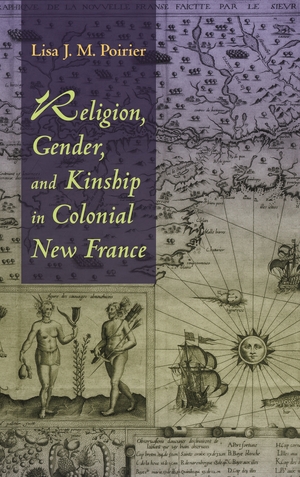"A valuable contribution not only to the history of religion, but also to Algonquian ethno-history, and the history of New France. Its interdisciplinary value is afforded by another of the book’s chief strengths: the bringing of a history of religions perspective to historical and ethno-historical scholarship on the early decades of colonialism in New France."—Reading Religion
"Drawing on primary research in Reuben Gold Thwaites's translated edition of The Jesuit Relations (1896–1901), the author emphasizes the religious orientation of new kinship structures that emerged as French colonizers and Wendat hosts negotiated terms of coexistence. Recommended."—Choice
"An ambitious and engaging study of colonial documents (records of both explorers and missionaries) within which Poirier reveals the voices of historically muted Wendat peoples. She is not simply reading between the lines, but also ‘against the text,’ discovering a story that we have not heard before. This book promises to be the most important (and corrective) study of the period since Bruce Trigger’s groundbreaking The Children of Aataentsic."—Jennifer Reid, author of Religion and Global Culture
"Poirier’s study of the religious meaning in North America during the French colonial period is a welcome addition to a historical period that is too rarely investigated. The book is a careful historical narrative of a neglected period of modern history. More than this, her careful inquiry show how both the Wendot and French religious traditions were reconfigured within the transcultural spaces of the contact zone.”"—Charles H. Long, author of Significations: Signs, Symbols, and Images in the Interpretation of Religion
Description
The individual and cultural upheavals of early colonial New France were experienced differently by French explorers and settlers, and by Native traditionalists and Catholic converts. However, European invaders and indigenous people alike learned to negotiate the complexities of cross-cultural encounters by reimagining the meaning of kinship. Part micro-history, part biography, Religion, Gender, and Kinship in Colonial New France explores the lives of Etienne Brulé, Joseph Chihoatenhwa, Thérèse Oionhaton, and Marie Rollet Hébert as they created new religious orientations in order to survive the challenges of early seventeenth-century New France. Poirier examines how each successfully adapted their religious and cultural identities to their surroundings,
enabling them to develop crucial relationships and build communities. Through the lens of these men and women, both Native and French, Poirier illuminates the historical process and powerfully illustrates the religious creativity inherent in relationship-building.
About the Author
Lisa J. M. Poirier is assistant professor in the Department of Religious Studies at DePaul University.
Related Interest
6 x 9, 248 pages
October 2016




